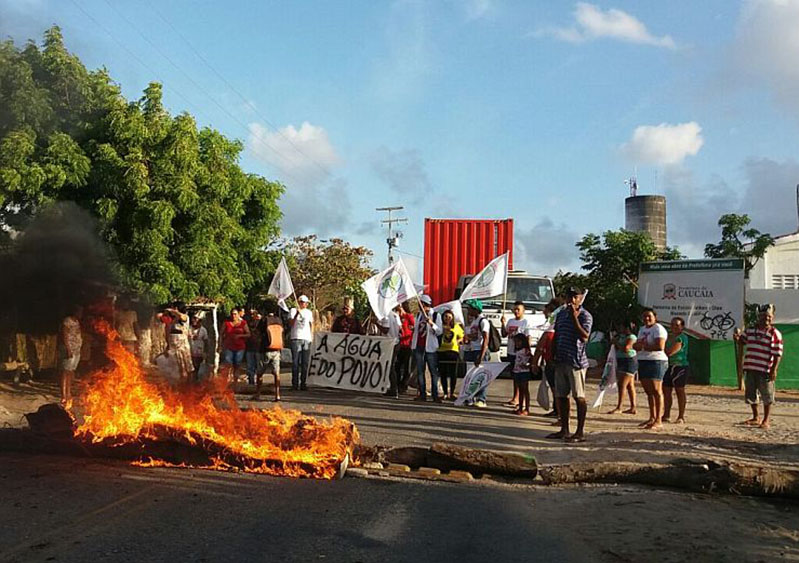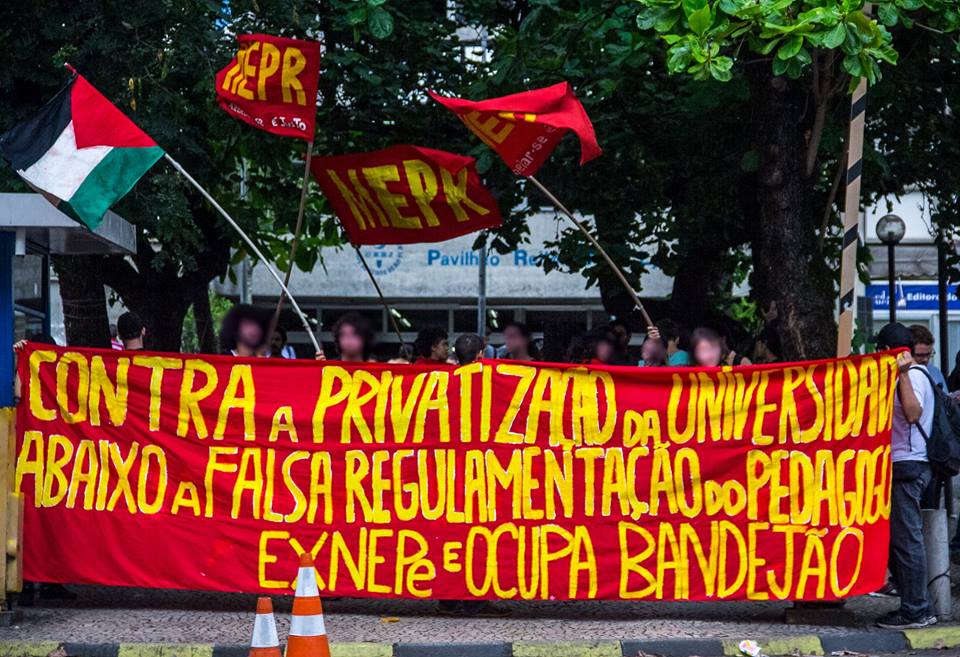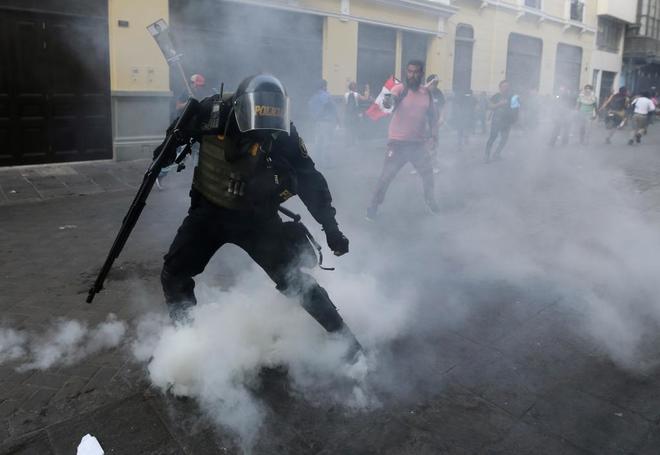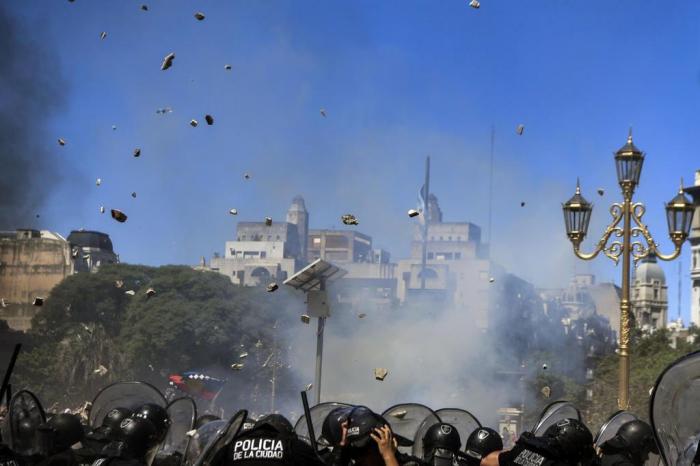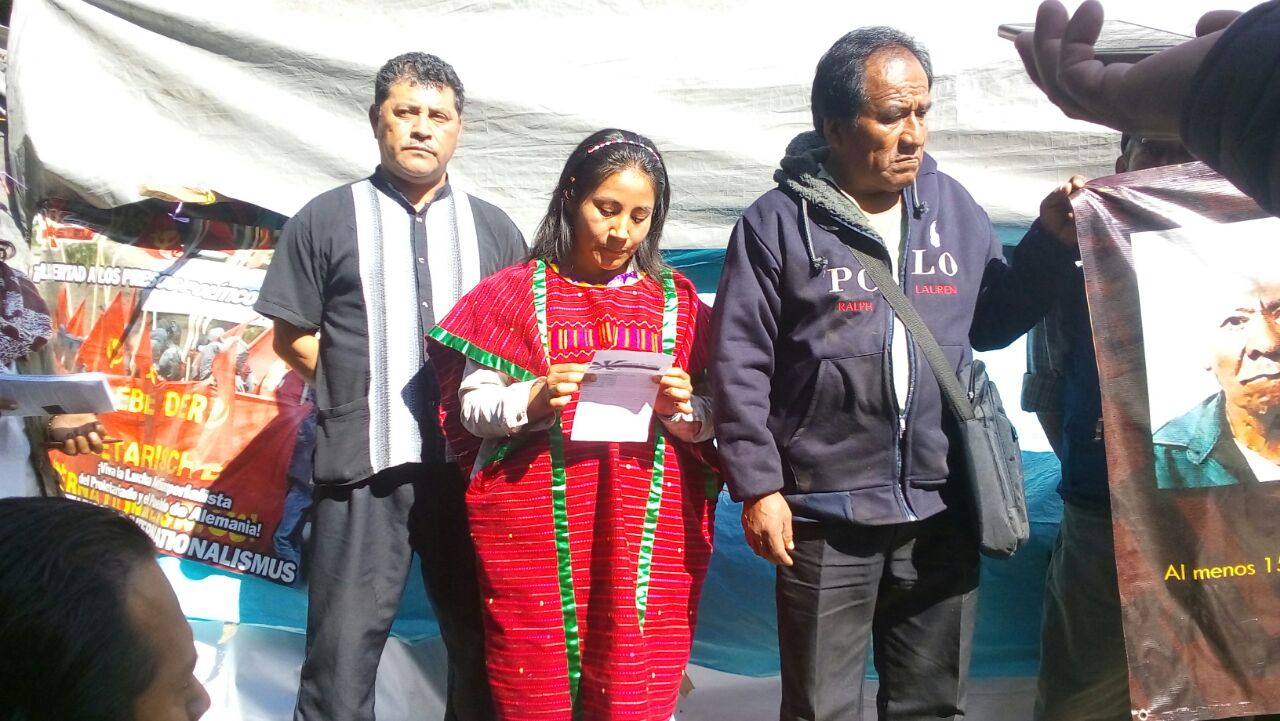Lateinamerika
Lateinamerika
- Details
- Category: Lateinamerika
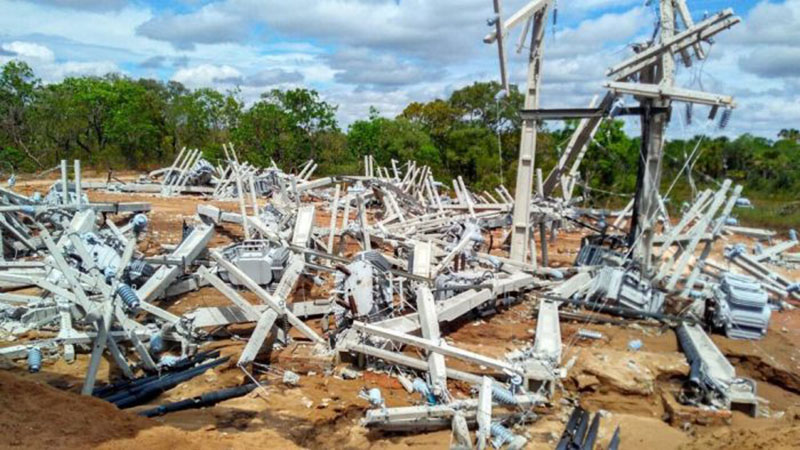
Fury of the masses after the uprising in November 2 in a facility for irrigation.
An important and combative popular uprising against the monopoly of water took place in the city of Correntina1 in November 2 this year, the media monopoly tried to criminalize the movement by calling it criminal and terrorist but, as a result, a bigger demonstration took place in November 11, where around ten thousand people from different neighbouring municipalities were on the streets of Correntina in solidarity to the struggle for the right to water and against the reduction of Arrojado river’s level because of the actions of the landlords and the consent of the environmental organs of the old State. “Igarashi go away!”2 and “we are not terrorists! We defend our rivers!” were slogans that marked the event. In December 1st around five thousand people attended to discuss the water problem in a public audience, and the people made denounces against the actions of the companies and the state concerning the water.
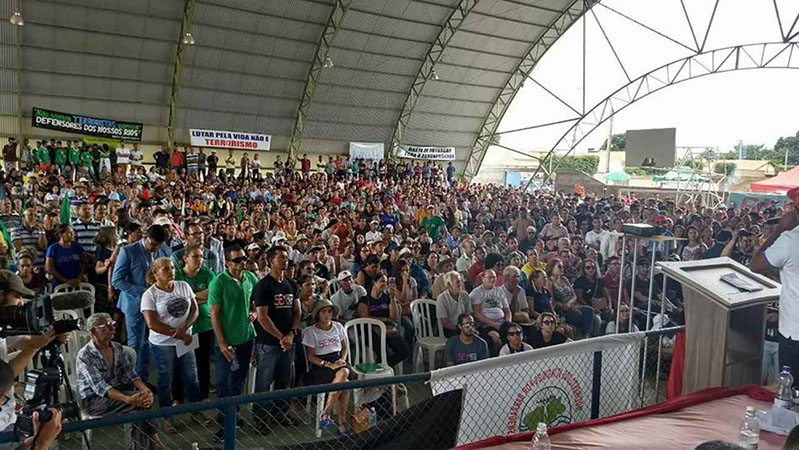
Public audience in December 1st
Also, in a city of Ceará in December 7, the people organized a roadblock with trunks and burning tires and occupied the construction site of the project to redirect the water of the lagoon afterwards. This project aims to supply the Industrial and Port Complex of Pecém and also two municipalities in the outskirts of Fortaleza city. It was denounced that the project doesn’t have an environmental impact study and violates the right to water for the local population.
The monopoly over the water is part of the problem of monopoly of land, as the landlords change the course of rivers to supply agribusiness that increases in the region since the 1970s but especially with the recent policies by the last governments to impulse the agribusiness occupation, counting with imperialism participation. This sharpens the contradiction between the people and latifundium, 156 conflicts concerning water involving 25.579 families were held in Bahia state in the period of 2002 until 2016, being 24 only in 2016, according to CPT3 data.
The dry Northeast has a total area of approximately 700 thousand square kilometres and approximately 23 million people (4 million landless peasants among them), one of the most populated semiarid regions between the tropics. The ground has a low capacity of storing water, the base is solid rock of gneiss or granite and has no space to store water and has a very shallow layer of soil over it, around 1 meter deep. There are some big cracks and openings that sometimes has water in a 60 meters depth, but most times does not worth to dig for it, because it is not proper for consumption.
But the geological and meteorological factors are not the only ones, nor the main reason for the restriction to water in the region. Most of the rivers are seasonal, the exception is São Francisco river, the biggest in the region, and very important for the peoples of Northeast. Most of the water in the region is being destined to agribusiness and mining activities, and the new project of transposition of the river, formulated by opportunism management of the state, were destined to deepen this situation.
It is clear that the situation the right to water is deeply linked to the right to land, with the struggle against latifundium and bureaucratic capitalism in service of imperialism, that restricts the people of the access to natural resources, steals all the natural resources from the people and leave only poverty behind. The struggle is sharpening and is each day clearer that only an Agrarian Revolution to seize all the lands of the landlords, a New Democracy Revolution to seize the big companies to serve the people’s interests and expel imperialism can secure that the peoples will have water, food and dignity.
1 – Correntina is a city in Bahia state, in the north-eastern region of Brazil.
2 – Igarashi is an agribusiness company which has Japanese capital that owns farms in the region.
3 – CPT – Comissão Pastoral da Terra – is a catholic organization that acts in the countryside of Brazil.
- Details
- Category: Lateinamerika
On the 23th of November, the ExNEPe (Executiva Nacional de Estudantes de Pedagogia - National Executive of Pedagogy Students) made several actions on the National Day of Struggle in Defense of Public and Free Education. In the cities of Rio de Janeiro (RJ), Guarulhos (SP), Belo Horizonte (MG), Petrolina (PE), Dourados (MS), Porto Velho (RO) and Itaberaba (BA), demonstrations were held. In other places, like Recife (PE), Montes Claros (MG), Nazaré da Mata (PE), Juazeiro (BA), Luzilândia (PI), Arapiraca (AL), Goiânia (GO) and União dos Palmares (AL), leaflets were spread and other actions executed.In the following, we document pictures and a video of the comrades in Brazil:
- Details
- Category: Lateinamerika
On the 27th of August, peasants of the LCP Northeast took back the land of the Várzea Grande farm in Rio Largo in Brazil's eastern province of Alagoas. In the four months since they have moved, they are faced with constant harassment by the agents of the big landowners and the state. In the face of all intimidation however, the peasants of Várzea Grande last week blocked the mayor highway close by in order to denounce the methods used against them.
- Details
- Category: Lateinamerika
On the 25th of December, Alberto Fujimori, former president of Peru and convicted for genocide (by the reactionary old peruvian state!), got released by the current yankee lackey president of Peru, Pedro Pablo Kuczynski. This release is no surprise and elaborated for a long time. The Communist Party of Peru wrote in their declaration on occasion of the centenary of the Great Socialist October Revolution:
"The Yankee PPK has recently met with the United Nations representative of foreign affairs issues and plans of their "Human Rights" (HR), which are nothing but the rights of the bourgeoisie and to guarantee the crimes of the old Peruvian state, he said that the UN told him to submit the genocide Fujimori to an examination of international doctors; for what? To give the pardon. They guarantee the genocides of the bureaucratic way and want to fulfil their main counter-revolutionary task of destroying the PW and the CPP."
- Details
- Category: Lateinamerika
On Tuesday, after in a surprise move preponing the vote, Argentine congress passed a new bill that further reduces pensions and social welfare benefits by a significant margin. This attempt made by the government to pre-emptively take the wind out of any potential protester’s sails by preponing however, horrible backfired for them. Tens of thousands of people protested against the proposal. For many hours thousands attacked the police in front of the congress building in Buenos Aires.
- Details
- Category: Lateinamerika
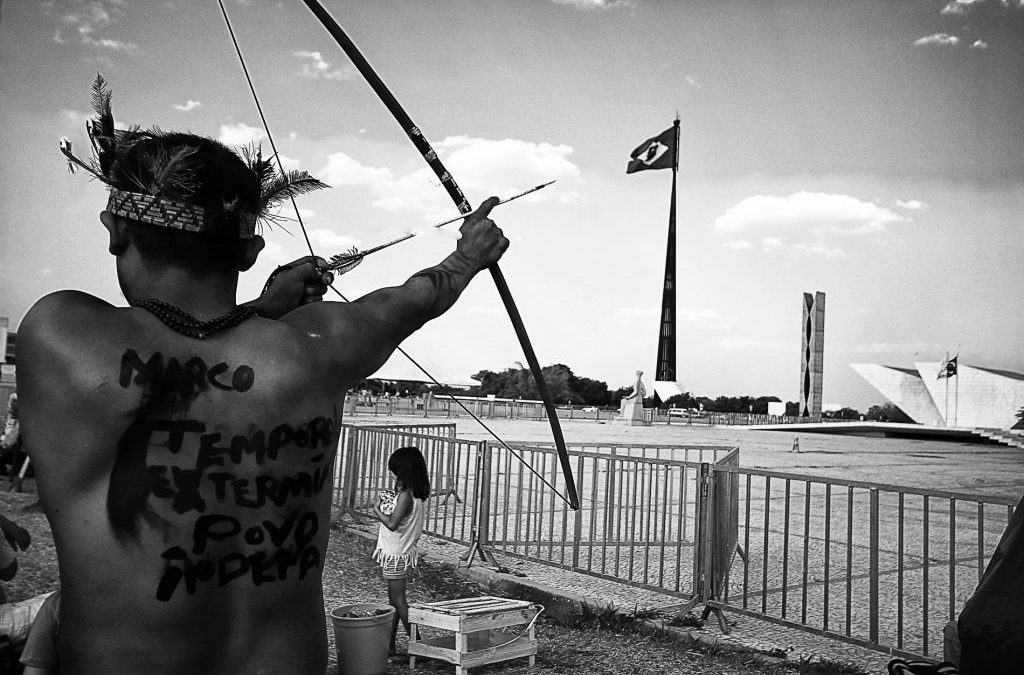 In December 6, around 90 indigenous peoples have occupied the General-Advocacy of the Union (AGU) office in Brasilia, Federal District, capital of Brazil. They demanded the revocation of the “Time Milestone” thesis in the delimitation of indigenous areas process. Also in November 23 hundreds of indigenous peoples from 17 different peoples made a demonstration in the streets of the capital.
In December 6, around 90 indigenous peoples have occupied the General-Advocacy of the Union (AGU) office in Brasilia, Federal District, capital of Brazil. They demanded the revocation of the “Time Milestone” thesis in the delimitation of indigenous areas process. Also in November 23 hundreds of indigenous peoples from 17 different peoples made a demonstration in the streets of the capital.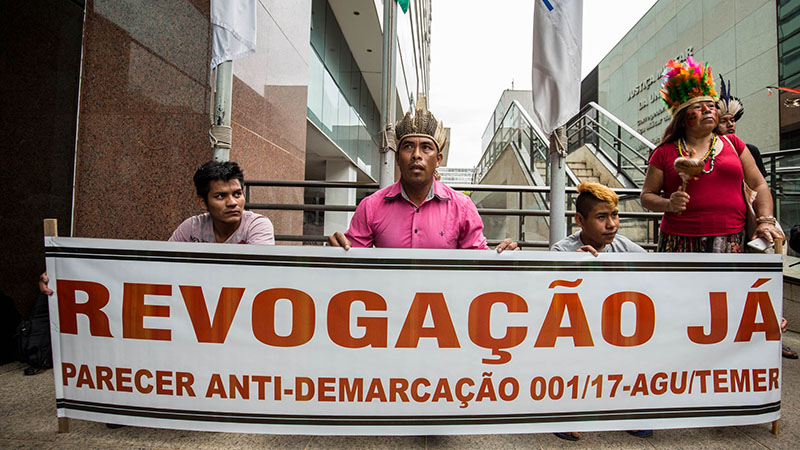
Occupation of the AGU, December 6 in Brasilia
Since the approval of the sentence 001/2017 by the federal management under Temer/PMDB in July 19, 2017 several demonstrations and road blocks has been made by many different peoples countrywide.

Indigenous demonstration in Brasilia, August 3
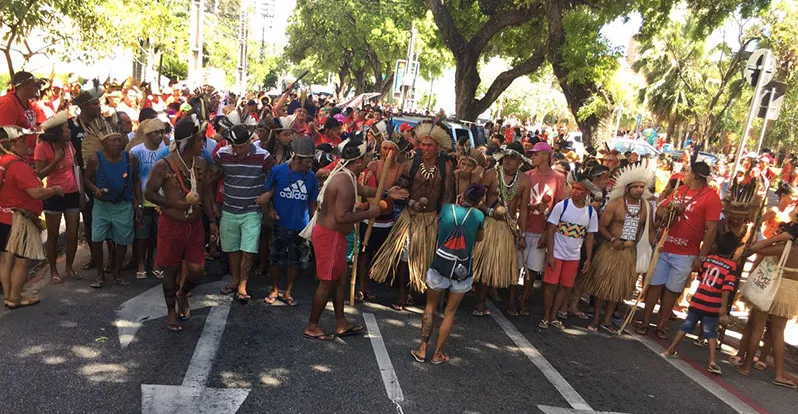
Indigenous demonstration in August 16 in Fortaleza city, in Ceara State
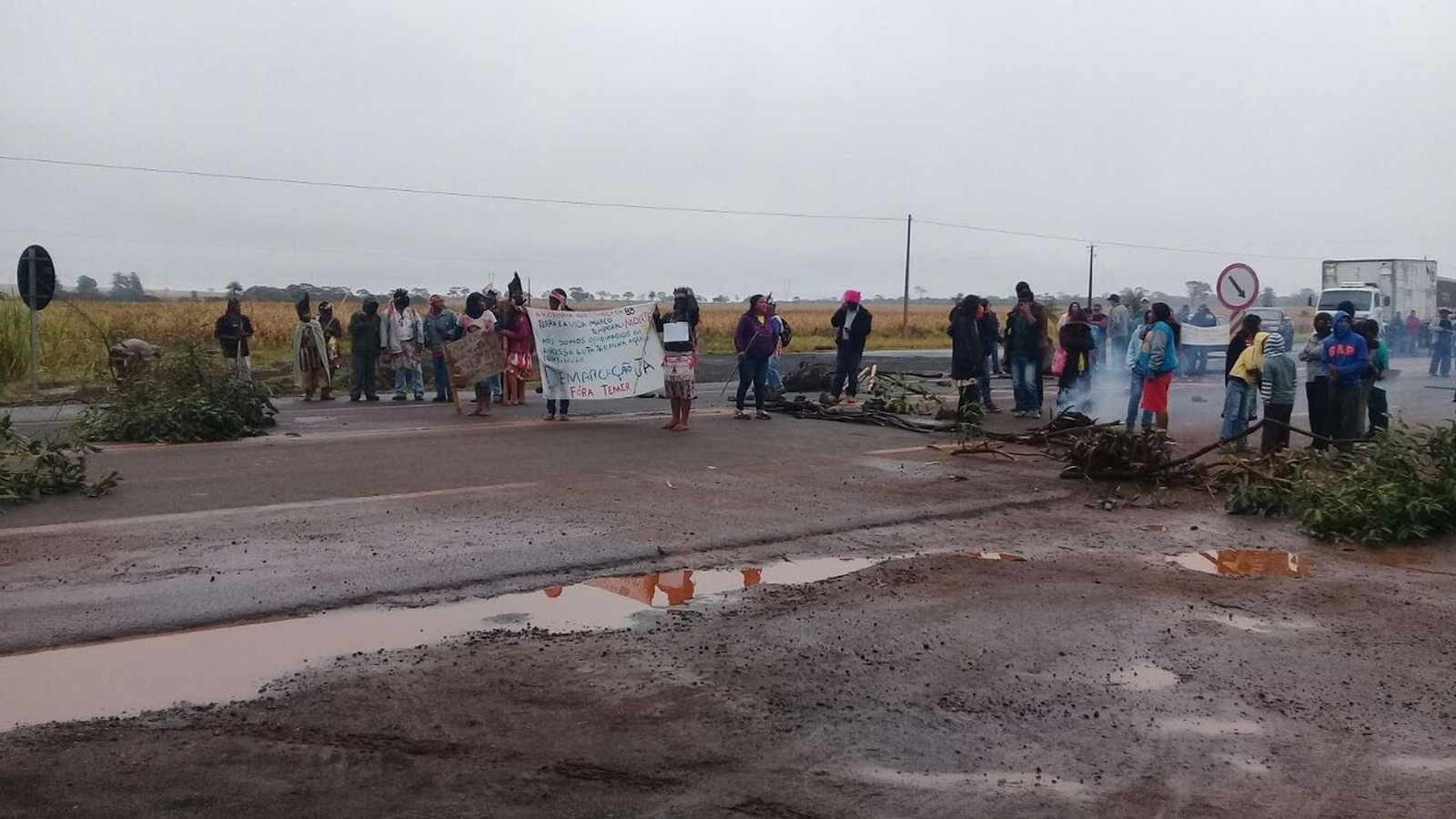
Roadblock on August 16 in South Mato Grosso state
According to this thesis the indigenous peoples and quilombola peoples can only demand the lands they were occupying since October 5th 1988, the date of the Federal Constitution proclamation. This thesis was developed in the judiciary to support the landlords, ignoring their historical secular actions in evicting the indigenous and quilombola peoples from the lands of the country.
This thesis is a fierce attack on the indigenous and quilombola people’s rights to land and a declaration of war against them. Since Temer got into the presidency not a single indigenous land was delimitated or homologated.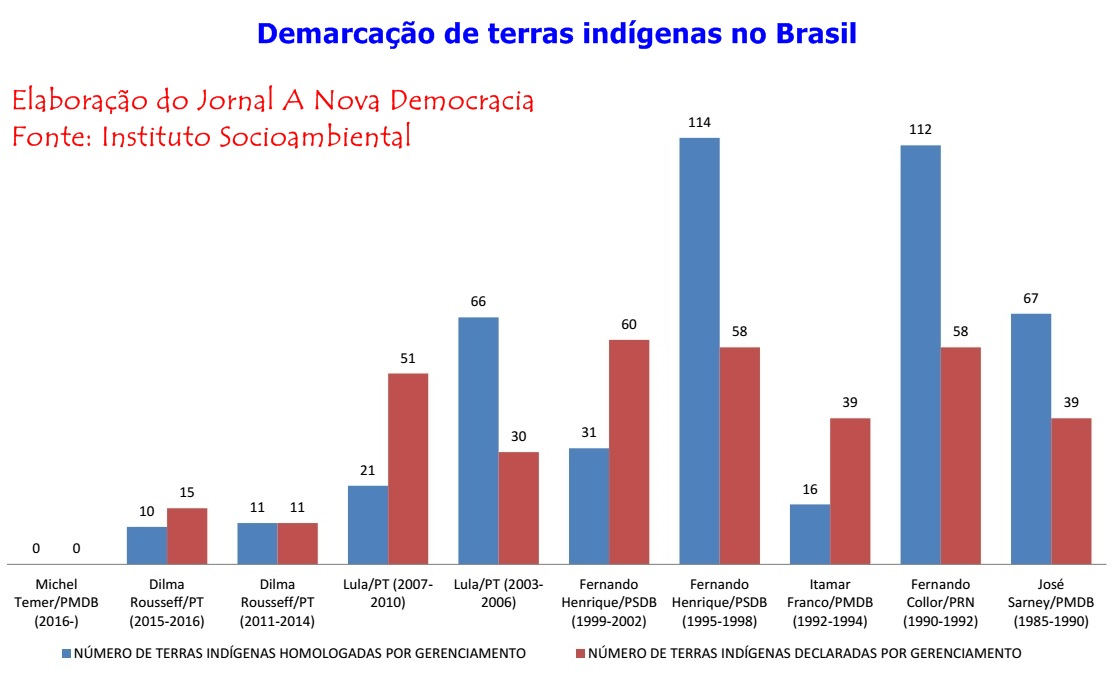
Graphic showing the number of indigenous lands that were recognised (in blue) and demilitated (in red) in the different president managements
The agrarian situation sharpens and more than ever is clear that this state can offer no alternative to the right of land to the tiller and for the indigenous and quilombola peoples. The only solution that arises is the agrarian revolution as part of the new democracy revolution to sweep away definitively the rotten landlord class of the country and crush the semifeudality, present in the root of every relation of production in the country.
- Details
- Category: Lateinamerika
We publish an inofficial translation of a declaration by the Current Red Sun - Oaxaca:
To the working class and the peoples
To democratic and revolutionary organizations
To the democratic magisterium agglutinated to the CNTE1 and classist unions
- Details
- Category: Lateinamerika
On the 12th of December, comrade Del, José Adeilton died in the age of 55 due to a cardiac arrest. He died in the Revolutionary Area Renato Natan, in Messias, in the braszilian state Alagoas. The comrade had a severe impairment as a result of an enlarged heart and the risk of a sudden death was very high. We translate excerpts of the Declaration of the League of Poor Peasants of the Northeast (LCP-NE) on him:
Del faced his health condition with great courage and the possibility of the transplant with extreme valor. He decided to wait at home to be able to continue fulfilling his revolutionary tasks. He devoted his last hours to the Agrarian Revolution. In the People's Assembly last Sunday, he showed brilliant energy. He decided to walk from his home to the headquarters of the CDRA, a distance of 2 km. In the Assembly, he made a long intervention of more than 2 hours highlighting the tasks that were to be completed, particularly the completion of the construction of the flour mill, also agitated the need to increase the union of the people and to fight the pedants. He finally summoned everyone to celebrate the 100th anniversary of the Great Socialist Revolution of October, scheduled for 23/12, which will now also be celebrated in his honor.
